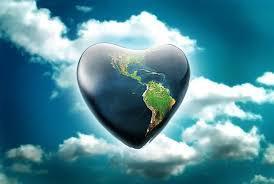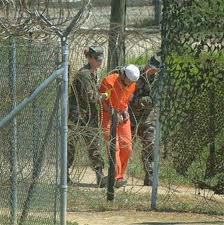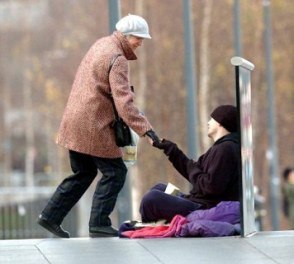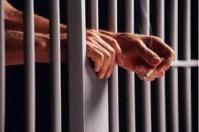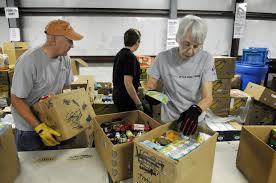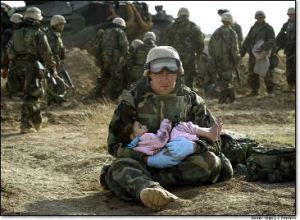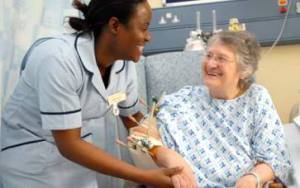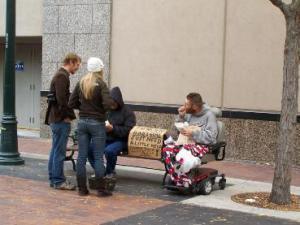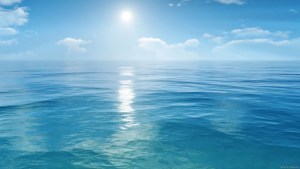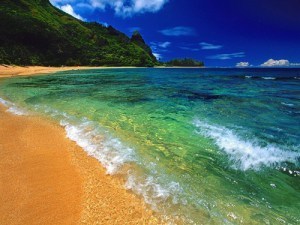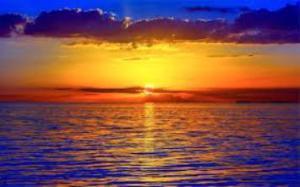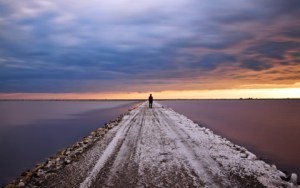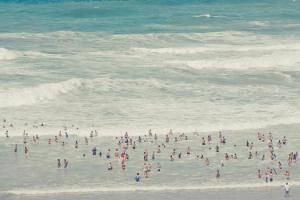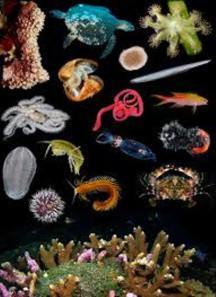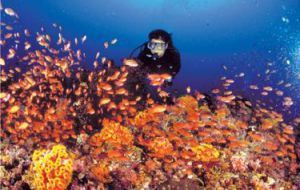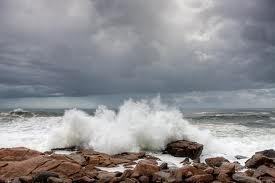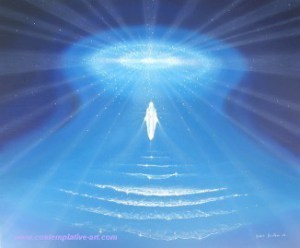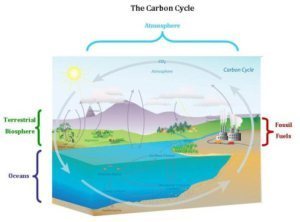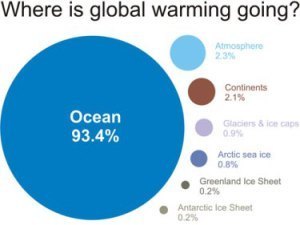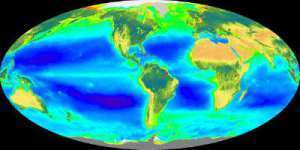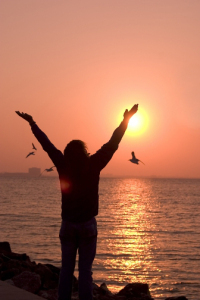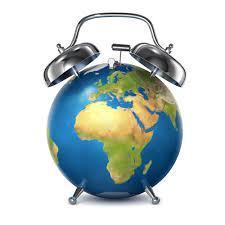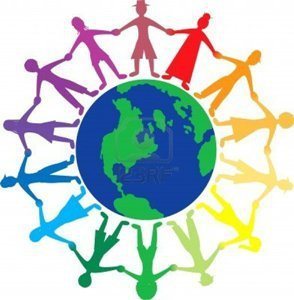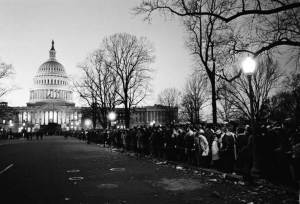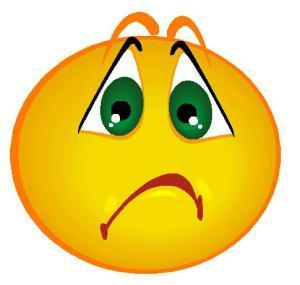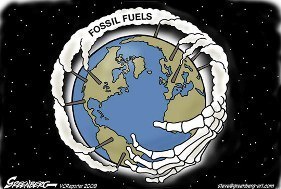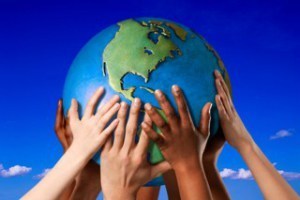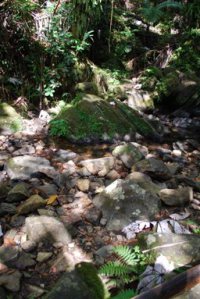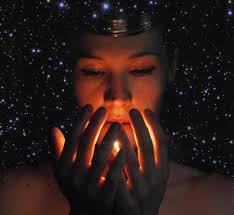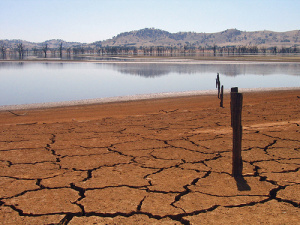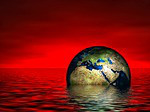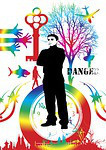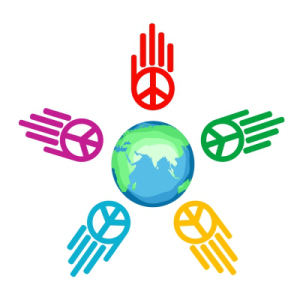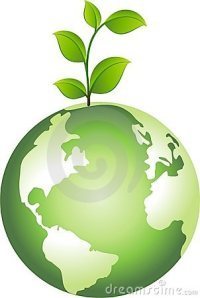Jan Krause Greene's Blog, page 5
December 16, 2013
Living with compassion
Today I signed the Charter for Compassion pledge. I have joined with over 100,000 people around the world. It makes so much sense to me. The more compassion in our daily lives, the more compassion in the world.
At this time of year, when millions of people around the world celebrate the birth of the Prince of Peace and the beginning of a New Year, it seems fitting to make compassion a priority. Learning about the Charter for Compassion and signing the pledge can be the basis for a truly meaningful New Year’s resolution.
Of course, I have never really kept my other resolutions – exercise every day, lose weight, get organized, learn to paint, learn a new language, become a better cook, moisturize before going to bed… the list of ways to improve myself goes on and on, and has proven to be almost completely meaningless. Will I be any better at keeping this resolution?
I hope so, because this one is actually important. So to start, I should begin by understanding what compassion actually is.
The word itself means “co-suffering, or to suffer with.” The common understanding of compassion is that it is an awareness of the suffering of another along with a desire to alleviate that suffering.
We have all felt this many times in our lives, particularly when we see the suffering of someone we know and love, or when we see the suffering of people to whom we can relate. But, the Charter encourages us to act compassionately to everyone with no exceptions:
“Compassion impels us to work tirelessly to alleviate the suffering of our fellow creatures, to dethrone ourselves from the centre of our world and put another there, and to honour the inviolable sanctity of every single human being, treating everybody, without exception, with absolute justice, equity and respect.”
This is not a simple task. Certainly, it is harder than exercising everyday or applying moisturizer before bed. It requires me to realize that I am not the most important being in my life…that everyone matters as much as I do. These words are easy to write, easy to think about, and yet, very difficult to live.
One of the characters in I Call Myself Earth Girl experiences a gradual shift in her worldview after years of trying to answer questions posed by her daughter about war, poverty, and why some people suffer so much more than others. When she realizes that she does not have much longer to live, she decides to leave a statement about her new understanding and how she wishes she had lived her life:
We share this planet with each other. None of us own it.
Yet, all of us are responsible for its survival.
We are all connected by our humanity.
I know that every other human being is no less valuable than I.
I believe that love can overcome hate, just as light overcomes darkness.
I believe in peace. I will work for peace.
I will try to:
Consider the impact of my actions on my fellow human beings and on the earth.
Engage in no activity that deliberately harms another human being.
Learn the impact of my choices on people in other parts of the world.
Seek nonviolent solutions to the problems we face.
Always recognize and protect the beauty of the earth
Live with joy in my heart.
The character recognizes that writing a statement about how to live while on her deathbed is much easier than living that way for a lifetime. To have a philosophical ideal about how to live and to put that ideal into actual practice are two very different things.
One is about thinking.  The other is about doing.
The other is about doing.
I actually wrote this statement years before I wrote the book. It is how I want to live. But, I have failed at one or more aspects over and over again ever since I wrote it. I hope that signing the pledge and aligning myself with others who have signed the pledge will help me live up to it. It is truly the most important resolution I have ever made. I hope and pray it is also the most successful.
Please wish me success in this quest to bring true compassion for all into my life.
If you would like to join me and those 100,000 like-minded people, please sign the pledge and please share this blog so that others will sign too!
You can read all about the Charter and also sign the pledge at http://charterforcompassion.org/the-charter
Here are some other resources:
Raising Compassionate, Courageous Children in a Violent World by Janice Cohn, Longstreet Press
Twelve Steps to a Compassionate Life, Karen Armstrong, Anchor Press
Popular books on compassion listed on Goodreads.com
https://www.goodreads.com/shelf/show/compassion


December 6, 2013
If you love the ocean, now is the time to show you care.
Think for a moment about the oceans. What do they mean to you?
For most of my life, I have lived less than an hour’s drive from an ocean and it gives me comfort to know that I am so close. I can’t really imagine not being able to see, smell and hear the ocean whenever I want to. For me the sea shore is a place where I find peace; where I feel most connected to the infinite energy that gives us life.
I feel loved and loving when I see a sunrise or a sunset on the water. I feel connected to those who live on the “other side” of the immense and beautiful sea that connects one continent to another. I feel, indeed, that I could not live without the ocean.
And I am right. Even if I lived hundreds of miles from it, I could not live without the ocean. Neither could you. Literally.
Oceans are integral to human survival.
Maybe that is why so many people love to be near them. Is there something deep in our collective unconscious that knows our survival as a species is intricately connected to the oceans that make up over 70 percent of the earth’s surface?
Without being consciously aware that 94 percent of life on earth is aquatic, do we realize in the depths of our being, that we land-dwellers are a small minority and that we are, indeed, dependent on the biodiversity the ocean contains?
When I used to scuba dive in the Caribbean, I was amazed by the diversity and beauty of the underwater life I saw. I never stopped to think about the bio-medical products that have been made possible by the diverse forms of marine plant and animal life.
When I enjoy the majesty of Gloucester’s rocky coast, or Cape Cod’s sandy beaches, I never once think about how the ocean transfers heat from the equator to the north and south poles, or how it moderates carbon dioxide levels in the atmosphere. I simply bask in its beauty and relax into the peaceful, contented feeling that being near the ocean always gives me.
I know that millions of people share this love of the ocean. That is why so many people choose ocean-based vacations. Lately, though, I have begun to think that we are drawn to the ocean, not by its beauty, but by our subconscious understanding that it makes life on earth possible.
Has God or the universe created us to have an innate love of the ocean in order to help us understand that we need it? I think the answer is yes.
And, if the answer is yes, then it is important to understand what the ocean does for us. Even more important may be understanding what is happening to the ocean due to the increase of carbon dioxide in the atmosphere.
I am not a scientist so my explanation will be simple. I will include references at the end for more thorough understanding.
The ocean plays a vital role in removing CO2 from the atmosphere. Right now, almost half of the carbon emitted by burning fossil fuel is absorbed by the earth’s oceans. More carbon dioxide can be absorbed and processed safely in cold water than in warm water.
As the earth’s temperature rises, it affects the temperature of the water in the ocean. The warmer the ocean becomes the less able it is to absorb CO2 without harm to marine life, and to the ocean itself.
So, we have a huge problem: as more carbon dioxide is emitted global temperatures increase and the ocean water itself warms and is, therefore, less able to absorb the CO2.
But that is not the only problem the ocean (and we humans who depend on it) is facing. The ocean water is becoming more and more acidic due to the increase in carbon dioxide. Human activities are adding 24 million tons of CO2 to the oceans every day. Research has shown that the acidity has increased almost 30 percent in the last 100 years! This really matters because a balanced pH level in the ocean is crucial to the ocean’s ability to absorb carbon dioxide from the atmosphere.
Nature gave us a beautiful system of carbon exchange between the earth, the ocean and the atmosphere. We have unwittingly debilitated that system. We have taken something beautiful and life-giving and turned it into a vicious cycle.
I don’t blame us for what has happened. Most of us didn’t know, or didn’t understand. But that is in the PAST. All of the information is available to us now. We have no excuse not to know.
We are so privileged to be the ones who have been given the gift of knowledge. We must not reject this gift. We can not return it because it isn’t comfortable. We must accept it with gratitude. We must embrace it. We – you and I – are here NOW.
Martin Luther King, Jr’s words from almost 50 years ago state it well : “We are now faced with the fact that tomorrow is today. We are confronted with the fierce urgency of now. In this unfolding conundrum of life and history, there is a such thing as being too late. Procrastination is still the thief of time.”
We can not wait. We must learn how to live differently. We are the leaders the earth has been waiting for. We are the stewards the ocean needs. We are the humans who have been chosen to join together and heal the earth. We can do it. We must do it. Let us begin now.
Remember that what happens next is up to all of us. We are all connected.
“When people are determined they can overcome anything.” (Nelson Mandela, Johannesburg, South Africa, Nov. 14, 2006)
References and resources
http://www.noaa.gov/ocean.html
http://www.seaweb.org/markets/health.php
http://www.climate.org/topics/climate-change/ocean-uptake-climate-change.html
http://www.bbc.co.uk/news/science-environment-24904143
Speech delivered by Dr. Martin Luther King, Jr., on April 4, 1967, at a meeting of Clergy and Laity Concerned at Riverside Church in New York City.
I Call Myself Earth Girl, novel by Jan Krause Greene
SeaWeb helps mitigate ocean pollution by sharing and supporting safe, sustainable and responsible ways to interact with our marine environment.
SeaWeb’s KidSafe Seafood program provides guidance for selecting healthy, sustainable fish for child consumption. KidSafe Seafood informs parents of the dangers of eating mercury- or PCB-laden seafood while providing sustainable, healthy alternatives.
Learn what you can do to live healthy and sustainably while helping the ocean
For more information, you can visit:
The National Academies 2009 report Oceans and Human Health
Woods Hole Center for Oceans & Human Health
Harvard Medical School’s Center for Health and the Global Environment
Pacific Northwest Center for Human Health and Ocean Studies, University of Washington
Oceans and Human Health Center, University of Miami
Pacific Research Center for Marine Biomedicine, University of Hawaii, Monoa
NOAA’s Oceans and Human Health Initiative (OHHI)


The privilege of NOW
Think for a moment about the oceans. What do they mean to you?
For most of my life, I have lived less than an hour’s drive from an ocean and it gives me comfort to know that I am so close. I can’t really imagine not being able to see, smell and hear the ocean whenever I want to. For me the sea shore is a place where I find peace; where I feel most connected to the infinite energy that gives us life.
I feel loved and loving when I see a sunrise or a sunset on the water. I feel connected to those who live on the “other side” of the immense and beautiful sea that connects one continent to another. I feel, indeed, that I could not live without the ocean.
And I am right. Even if I lived hundreds of miles from it, I could not live without the ocean. Neither could you. Literally.
Oceans are integral to human survival.
Maybe that is why so many people love to be near them. Is there something deep in our collective unconscious that knows our survival as a species is intricately connected to the oceans that make up over 70 percent of the earth’s surface?
Without being consciously aware that 94 percent of life on earth is aquatic, do we realize in the depths of our being, that we land-dwellers are a small minority and that we are, indeed, dependent on the biodiversity the ocean contains?
When I used to scuba dive in the Caribbean, I was amazed by the diversity and beauty of the underwater life I saw. I never stopped to think about the biomedical products that have been made possible by the diverse forms of marine plant and animal life.
When I enjoy the majesty of Gloucester’s rocky coast, or Cape Cod’s sandy beaches, I never once think about how the ocean transfers heat from the equator to the north and south poles, or how it moderates carbon dioxide levels in the atmosphere. I simply bask in its beauty and relax into the peaceful, contented feeling that being near the ocean always gives me.
I know that millions of people share this love of the ocean. That is why so many people choose ocean-based vacations. Lately, though, I have begun to think that we are drawn to the ocean, not by its beauty, but by our subconscious understanding that it makes life on earth possible.
Has God or the universe created us to have an innate love of the ocean in order to help us understand that we need it? I think the answer is yes.
And, if the answer is yes, then it is important to understand what the ocean does for us. Even more important may be understanding what is happening to the ocean due to the increase of carbon dioxide in the atmosphere.
I am not a scientist so my explanation will be simple. I will include references at the end for more thorough understanding.
The ocean plays a vital role in removing CO2 from the atmosphere. Right now, almost half of the carbon emitted by burning fossil fuel is absorbed by the earth’s oceans. More carbon dioxide can be absorbed and processed safely in cold water than in warm water.
As the earth’s temperature rises, it affects the temperature of the water in the ocean. The warmer the ocean becomes the less able it is to absorb CO2 without harm to marine life, and to the ocean itself.
So, we have a huge problem: as more carbon dioxide is emitted global temperatures increase and the ocean water itself warms and is, therefore, less able to absorb the CO2.
But that is not the only problem the ocean (and we humans who depend on it) is facing. The ocean water is becoming more and more acidic due to the increase in carbon dioxide. Human activities are adding 24 million tons of CO2 to the oceans every day. Research has shown that the acidity has increased almost 30 percent in the last 100 years! This really matters because a balanced pH level in the ocean is crucial to the ocean’s ability to absorb carbon dioxide from the atmosphere.
Nature gave us a beautiful system of carbon exchange between the earth, the ocean and the atmosphere. We have unwittingly debilitated that system. We have taken something beautiful and life-giving and turned it into a vicious cycle.
I don’t blame us for what has happened. Most of us didn’t know, or didn’t understand. But that is in the PAST. All of the information is available to us now. We have no excuse not to know.
We are so privileged to be the ones who have been given the gift of knowledge. We must not reject this gift. We can not return it because it isn’t comfortable. We must accept it with gratitude. We must embrace it. We – you and I – are here NOW.
Martin Luther King, Jr’s words from almost 50 years ago state it well : “We are now faced with the fact that tomorrow is today. We are confronted with the fierce urgency of now. In this unfolding conundrum of life and history, there is a such thing as being too late. Procrastination is still the thief of time.”
We can not wait. We must learn how to live differently. We are the leaders the earth has been waiting for. We are the stewards the ocean needs. We are the humans who have been chosen to join together and heal the earth. We can do it. We must do it. Let us begin now.
Remember that what happens next is up to all of us. We are all connected.
“When people are determined they can overcome anything.” (Nelson Mandela, Johannesburg, South Africa, Nov. 14, 2006)
References and resources
http://www.noaa.gov/ocean.html
http://www.seaweb.org/markets/health.php
http://www.climate.org/topics/climate-change/ocean-uptake-climate-change.html
http://www.bbc.co.uk/news/science-environment-24904143
Speech delivered by Dr. Martin Luther King, Jr., on April 4, 1967, at a meeting of Clergy and Laity Concerned at Riverside Church in New York City.
I Call Myself Earth Girl, novel by Jan Krause Greene
SeaWeb helps mitigate ocean pollution by sharing and supporting safe, sustainable and responsible ways to interact with our marine environment.
SeaWeb’s KidSafe Seafood program provides guidance for selecting healthy, sustainable fish for child consumption. KidSafe Seafood informs parents of the dangers of eating mercury- or PCB-laden seafood while providing sustainable, healthy alternatives.
Learn what you can do to live healthy and sustainably while helping the ocean
For more information, you can visit:
The National Academies 2009 report Oceans and Human Health
Woods Hole Center for Oceans & Human Health
Harvard Medical School’s Center for Health and the Global Environment
Pacific Northwest Center for Human Health and Ocean Studies, University of Washington
Oceans and Human Health Center, University of Miami
Pacific Research Center for Marine Biomedicine, University of Hawaii, Monoa
NOAA’s Oceans and Human Health Initiative (OHHI)
it. We must do it. Let us begin now.
“When people are determined they can overcome anything.” (Nelson Mandela, Johannesburg, South Africa, Nov. 14, 2006)


November 24, 2013
We Stood Together
Fifty years ago today, I set out just after dark with my mother and two friends to pay our respects to our slain president as he lie in state in the Capitol Rotunda. It was a last minute decision. I had begged my mother to take us. She thought it might be dangerous, but in the end, she knew that we would be witnesses to history. We put on our winter coats and climbed into our Rambler American. As we listened to coverage on the radio during the drive from Wheaton, Maryland into Washington, D.C., we wept.
I don’t remember how my mother found a place to park, but she did. As we walked towards the crowd, I couldn’t believe what I was seeing – a huge mass of people of all ages. The line was so long that we couldn’t see the front, and after we joined them, it was only minutes before we couldn’t see the end. I still remember thinking how “wide” the line was – maybe as many as 5 to 10 people abreast. I expected it to be single file, just like all the lines I waited in to receive Communion at church, or to buy something in a store. We stood four abreast – my mother, worried at first about our safety, but now knowing she had made it possible for us to be part of something we would never forget – myself, and my two close friends.
I remember being cold and wondering if we would ever actually get to the Capitol building. At first, we were caught up in our own little drama of waiting, shivering, hoping they didn’t turn us away because it was too late. But then something shifted for me. I began to notice what was going on around us. The crowd continued to grow and as it grew, I began to feel an intense solidarity with the people around me.
Local residents were arriving with blankets, hats, gloves to keep us warm. Others were bringing coffee and hot chocolate. People were singing. Strains of “We Shall Overcome” and “Bill Bailey, Won’t You Come Home” kept starting up in different parts of the line. Near us people had linked arms and were swaying together. Someone was singing “Amazing Grace” in a soft, clear voice.
We stood in line until dawn, entering the Capitol Rotunda as the sun was rising. After the hours of waiting, our moment in the rotunda went by so quickly. As we walked by the flag-draped casket, I tried to connect what I was seeing with the president I had loved and admired. I couldn’t do it. He had been vital, optimistic, inspiring. Now I was looking at a coffin and I just couldn’t believe that he was in it. I was so completely sad.
The assassination itself took away my innocence. Indeed, it took away the innocence of many in my generation, irretrievably lost to something that we had never imagined could happen. My view of the world was forever altered by a gunshot in Dallas on that Friday afternoon. Writing this now makes me realize how naive and protected my life, our lives, had been. I had been able to get to the age of 15, safe and secure, mostly carefree and happy. I knew there were problems in the country and the world, but I saw them as something I would help to solve, not something that would ever cause me personal, gut-wrenching grief.
I was 12 years old when John F Kennedy became president. Even though I was a pre-teen, I was captivated by him…his message, his youth, his vitality. For the first time, I began to think of how to contribute to society. He tapped into my idealism and made me feel that I could really make a difference in the world. I campaigned door-to-door for him (something I have done for my candidate in almost every presidential election since that one so many years ago.)
I watched his inauguration with friends. None of their parents had voted for Kennedy, but mine had, and I was so proud as he took his oath of office. I was young enough and innocent enough to believe that he could lead Americans into an almost perfect era of social justice and peace in the world. I believed in the New Frontier and I believed in the USA. I knew we had our problems. There was no way to grow up close to Washington and not realize that black people had been treated unfairly in this country for as long as they had been here. Just as there was no way to live near DC and be unaware of poverty. But I believed that Kennedy wanted to solve these problems and that he could
I was too young to understand all the complexities of domestic policy and foreign affairs. There was so much I did not know. What I did know was that there were still injustices in our society and that there was a president who wanted to fix these things. Not just here, but abroad. Not only that – he actually wanted young people to help him, and I wanted with all my heart to be one of those young people.
He was so influential in shaping my values that all these years later, knowing all that I know now, I still have those values. I still want the same things for our country and I still want to be part of the solution. My scope of concern is wider now and the specific details are different – more mature, more aware of complexity, and yet, still framed by the idealism that he touched and nurtured. An idealism that couldn’t be extinguished with a gun.
But my innocence was a different matter. It was gone. Never to return. It didn’t have a chance. Malcolm X, Martin Luther King, Jr., Robert Kennedy, Vietnam, the Democratic National Convention, Kent State … and so much more. It changed the way I looked at the past as well as the present. When innocence is lost it re-shapes the way you see the world.
Yet, that night at the Capitol gave me something I never had before. I felt that I was part of something so much bigger than myself. I was part of a crowd that shared the same sorrow – that had shared the same hope for a better world – and I knew that some of us would want to keep working together for that better world. Seeing all those people come to stand all night in the freezing cold in order to pay their respects taught me something. We were there, not just to our honor our slain president, but also to comfort each other. We stood together because we needed each other even more than we needed to walk past his casket. All these years later, we are re-living those days because we still need each other.
That was always part of JFK’s message – the New Frontier was about forging ahead together. These are the last lines of the speech that he was to give the night he died:
“Neither the fanatics nor the faint-hearted are needed. And our duty as a Party is not to Party alone, but to the nation, and indeed, to all mankind. Our duty is not merely the preservation of politic power, but the preservation of peace and freedom.
So let us not be petty when our cause is so great. Let us not quarrel amongst ourselves when our Nation’s future is at stake.
Let us stand together with renewed confidence in our cause – united in our heritage of the past and our hopes for the future – and determined that land we love shall lead all mankind into new frontiers of peace and abundance.”
In the many years that followed, we may have picked the part of his message that resonates for us each of us personally – I ended up being a pacifist, an advocate for social justice and environmentalist – but his message of working together is still one of his most important legacies. I hope this 50th anniversary helps us remember that.
http://www.youtube.com/watch?v=MQxqpYs_JfQ (somehow we all knew it was his favorite song)
http://www.huffingtonpost.com/2013/11/07/jfk-assassination_n_4233535.html
http://www.dailyherald.com/article/20131122/news/711229999/photos/


November 21, 2013
WTF is happening in Warsaw?
Presenting a short dialogue between two characters I know quite well, ME and I.
ME represents me when I really think about climate change and what it means
I represents me when I want to convince myself that it will be okay, or when I don’t want to think about it because it is too upsetting, or because thinking about it should naturally lead to doing something about it, and how hard is that? I mean, I have a life to live and blogs to write and a family to care for and places to go and things to do, and Christmas presents to buy. I’m too busy to pay attention to this.
ME: Climate change is real. There is almost universal agreement about this now. Climate change has the possibility of drastically changing our environment and our way of life.
I: Don’t worry, things will be okay. After all, the 20th UN Climate Change Conference is being held in Warsaw right now. That’s a relief, right?
ME: Depends on how optimistic you are. Things are deteriorating rapidly. Yesterday delegates from 132 poor and developing countries walked out of the talks.
I: Yea, but those things happen. It’s how they negotiate. No worries. They managed to come up with the Kyoto Protocol in 1997 and that had a legally binding plan to reduce greenhouse gas emissions 6% to 8% below what they had been in 1990 during 2008 -2012.
ME: Wow, I’m surprised you knew that.
I: Everyone has heard of the Kyoto Protocol.
ME: Did you know that Congress wouldn’t ratify the treaty after Clinton signed it, and Bush completely rejected it in 2001?
I: No, I didn’t know that, but I’m sure Bush had a good reason. Anyway, that was in the past. Now, good things are going to happen in Warsaw. Hey, do you want to have a snack?
ME: I think it might be a case of too little, too late. If they manage to get an agreement, it won’t actually be signed until they meet again in Paris in 2015, and it won’t go into effect until 2020.
I: WTF? 2020? That’s more than 6 years from now. Seems like a long time if things are really at a tipping point for carbon in the atmosphere. Those experts must know that the situation isn’t really that serious. Thank goodness. Let’s try that new pastry shop.
ME: Don’t be so sure. It is more about diplomacy and politics and funding than how serious the need is.
I: Well, some good will happen. Since the Cophenhagen talks in 2009, developed countries have invested more than $10 billion per year towards international climate actions.
ME: Yes, that is true and they agreed to get it up to $100 billion a year by 2020, but no one really thinks they will.
I: Well, no wonder! $100 billion a year is an awful lot.
Me:You should see how much we spend on fossil fuel subsidies.
I: I’m getting bored with this. Can’t we talk about something else? Anyway, that pastry shop closes soon. We’ll have to drive to get there before it closes.
ME: sigh…..
The End
I find myself having these inner dialogues more often than I like to admit. I feel the sense of urgency and I know in my heart, in my soul and in my mind, that we must all contribute to solving this problem now. We really don’t have time to wait. We must cut our worldwide carbon emissions. Yet, rich countries spend 5 times more on fossil fuel subsidies than on aid to developing nations to cut their emissions. In other words, we are spending more on ADDING carbon emissions to the environment.
My head actually hurts when I think of how complex the problem is. I know it is not simple. But, I also know we must not become paralyzed by the complexity. I saw Wendell Berry (poet, farmer, environmental activist) being interviewed by Bill Moyers and he spoke of our need to take care of the earth in simple terms.
He framed the question in terms of our relationship to the earth and our separation from nature; about how we don’t really know and love the very land we live on, the little plot of earth that is underneath our homes and the land that surrounds it. No matter where you live, the building is grounded on a piece of land. The water that comes into your home started flowing from an actual source in the earth. Berry says we can’t really take care of it until we are connected to it.
In his words:
“Because we have not made our lives to fit our places, the forests are ruined, the fields eroded, the streams polluted, the mountains, overturned. Hope then to belong to your place by your own knowledge of what it is that no other place is, and by caring for it as you care for no other place…Be still and listen to the voices that belong to the stream banks and the trees and the open fields… Find your hope, then, on the ground under your feet. Your hope of Heaven, let it rest on the ground underfoot… The world is no better than its places. Its places at last are no better than their people while their people continue on them. When the people make dark the light within them, the world darkens.”
Berry’s sense of the earth’s places is interesting to me. He expresses how we have harmed them, but he also urges us to care for them and to find hope in the ground underneath our feet. So what does that actually mean to us, as individuals living in vastly different places all over this earth? I think he answers that. He does not want us make dark the light within us. Caring for the earth, then, is intimately connected to keeping the light of hope shining inside us.
Do I think that this is the whole answer to healing the earth? No. But I think he gives us a pretty concrete suggestion when he says:
“The only question we have the right to ask is what’s the right thing to do? What does the earth require of us if we want to continue to live on it.”
For me, framing the question in terms of what the earth needs us to do in order to allow us to live on it is a helpful way to think about it. The planet earth will be here, with us or without us. If we want to continue to survive here, what does the earth need from us?
That is the question we must ask, and we must dedicate ourselves to finding the answers.
On the first season of West Wing in 1999, President Bartlet asked a question that is never answered:
“What will be the next thing that challenges us? That makes us go farther and work harder? You know that when smallpox was eradicated, it was considered the single greatest humanitarian achievement of the century? Surely we can do it again, as we did in a time when our eyes looked towards the heavens, and with outstretched fingers, we touched the face of God.”
The answer to that question is clear now. We must heal the earth before it is too late.
http://www.theguardian.com/environment/2013/nov/19/un-climate-talks-warsaw-poland
http://nationalpriorities.org/cost-of/
http://www.huffingtonpost.com/2013/03/18/iraq-war-costs_n_2885071.html
http://priceofoil.org/fossil-fuel-subsidies/
http://billmoyers.com/episode/full-show-wendell-berry-poet-prophet/
http://www.tv.com/shows/the-west-wing/the-crackpots-and-these-women-792/trivia/


November 16, 2013
The worst storm on record
 Reblogged from poet4justicedotwordpressdotcom:
Reblogged from poet4justicedotwordpressdotcom:
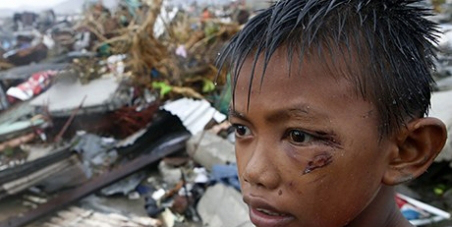
Dear friends,
The worst storm on record has devastated the people of the Philippines, and scientists say climate change fueled it. Leaders are meeting right now to decide whether to pay billions promised to help vulnerable countries recover from and protect against these climate disasters. Money that could go directly to helping the Philippines rebuild. The Filipino negotiator just went on a hunger strike for action and has started a petition on Avaaz -- let's stand with him:
Please read this very important blog by poet4justice and please sign the petition. We are all connected and what happens next is truly up to all of us.
November 14, 2013
What Happens Next?
Did you ever wonder what it would be like to live through a transition of enormous significance?
Would you be aware every day that radical transformation is taking place?
Logic tells me that we would notice changes all around us. Yet, my experience is telling me this is not true. Right now, the earth we inhabit is undergoing rapid climate change and, although, we hear the term everyday, most of us do not notice much of a difference. But a few people are taking notice and trying to get the rest of us to pay attention.
Roy Scranton is one of these people. Those who scoff at climate change as something that only hippy-dippy tree-huggers care about might be surprised to learn that Scranton is a veteran who served a tour in Iraq during the early years of the Invasion. In his recent opinion piece for The Stone, he tries to wake us up to what is happening right before our eyes.
He does not quote spokespersons for environmental organizations. Instead, he repeats the dire warnings of military and civilian leaders who are concerned about how national security is compromised by climate change and the resulting extreme weather events.
“This chorus of Jeremiahs predicts a radically transformed global climate forcing widespread upheaval — not possibly, not potentially, but inevitably. We have passed the point of no return. From the point of view of policy experts, climate scientists and national security officials, the question is no longer whether global warming exists or how we might stop it, but how we are going to deal with it.”
In other words, it is happening now. We are already living through a transition of enormous significance whether we choose to pay attention or not. So significant, in fact, that geologists are considering the addition of an new epoch to the Geological Time Scale. It would be called the Anthropocene and it is NOW. As the name suggests, this epoch is characterized by the effect the human species has on the earth’s geology.
So what does all this mean for us right now? Scranton suggests that we have to learn how to die “as a civilization.” In other words, during this epoch, the big philosophical questions about the meaning of individual lives and individual deaths will be overshadowed by the death of our civilization as we know it.
Sounds extreme, doesn’t it? Sounds like something that would pretty hard to ignore, right?
Apparently not, because most of us are pretty good at ignoring what is happening to our only real home, the earth. It is as if we have all agreed upon an unspoken pact of ignorance; believing somehow that if we don’t pay attention to it, it won’t really happen. Sure the climate is getting warmer, droughts are more severe and longer lasting, storms of all types are more extreme, but if we pretend it doesn’t matter, it won’t matter.
Why have so many of us decided to just ignore what is happening?
Maybe it is because noticing it and thinking about it means we have to do something. If we don’t want the world – not just the earth itself, but also civilization- to be radically different within 100 years, then we have to find solutions. Those solutions require extensive shifts in the way we live, the way we grow and produce food, the way we raise animals and crops, the way we travel, the homes we live in, even the clothes we wear.
How can we make those radical shifts if we don’t first have a massive shift of consciousness? A shift that starts with recognizing that we are all now, at this very minute, living through a transition of enormous significance. Yes, you and I and the little kid down the street and the old lady next door, all of us are living at a time of great consequence. We have been chosen by God, or the universe, the spirit world or random chance to guide ourselves and this planet on which we live through a period of vast change. How we live through that change and what kind of future we pass on to the generations that follow after us depends on how we respond now.
What happens next is up to all of us! 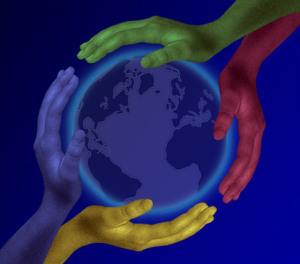
Roy Scranton article
Some books to read on the topic
Tropic of Chaos by Christian Parenti – a description of the chaos caused by climate change, serious and bleak, but not without hope that humans can change the path we are now on.
Cows Save the Planet by Judith D. Schwartz – this book is a call to action with actual things we can do to heal the earth. This book gives me hope. I urge everyone to read it.
I Call Myself Earth Girl by Jan Krause Greene – visionary fiction with an environmental and spiritual message about the times we live in and the future that we create. (Yes, it is my novel.)


October 26, 2013
Blogging and world peace
I just had a thought while I was reading some of the blogs I follow
BLOGGING CAN HELP CREATE A PEACEFUL WORLD
The blogging community is made up of strangers from different countries and from different communities within our own countries. We are different ages, genders, sexual orientations. We have different types of educations. We are probably from different social classes. Most likely, we have different views about politics, religion, music, entertainment, and family life. Most of us will never meet in “real” life. We know each other only from our blogs.
Yet, we share our thoughts, feelings and ideas with each other openly. Some of us even feel like friends.
By and large, we treat each other’s blogs with respect, sometimes even with reverence. We disagree with posts occasionally, but we don’t seek to dominate, invade, or destroy each other’s blogs. Most successful bloggers share advice with those of us who don’t have many followers. We want to see all bloggers flourish.
All of this makes me think that blogging may help us avoid war and conflict. If we can learn to bring the same collaborative approach to our geo-political interactions that we bring to our blogging, there may be hope for a peaceful future.
I know this sounds naive, ridiculously simple, even pollyanna-ish. I know it doesn’t address any of the complex problems that we face. Still, I feel that because bloggers have created communities without geographical boundaries, a seed of peace has been planted. I believe it can be nurtured. I hope that it will.
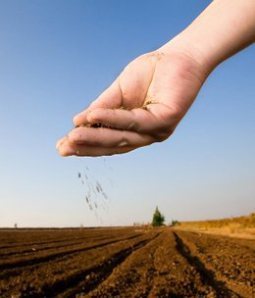


October 23, 2013
World Renown Heart Surgeon Speaks Out On What Really Causes Heart Disease
We physicians with all our training, knowledge and authority often acquire a rather large ego that tends to make it difficult to admit we are wrong. So, here it is. I freely admit to being wrong.. As a heart surgeon with 25 years experience, having performed over 5,000 open-heart surgeries,today is my day to right the wrong with medical and scientific fact.
The info in this blog puts together a lot of other info I have been reading about nutrition in various places. The description of inflammation is graphic enough to make me want to eliminate processed foods from my diet!
October 13, 2013
Army of One
 Reblogged from The Other Side of Ugly:
Reblogged from The Other Side of Ugly:
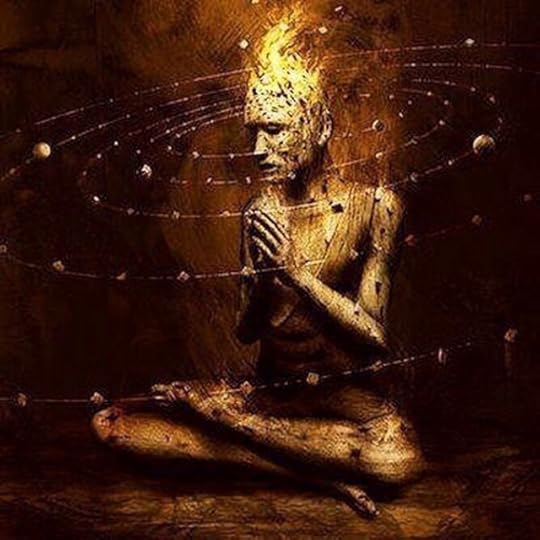
To every citizen of this earth who fearlessly proves the essence of humanity with great love and compassion; you are felt, heard, seen and sensed everyday.
To the many millions who come together and act like one entity by extending hands down to pull others up off of the ground; your unified efforts change lives in many a way.
You are like mercury that when laid upon flat surface finds it's way to join together; coalescing to tie together the ball to the tether.
I have always believed the Power of One really means the Power of EACH One. We all have a role in moving the global consciousness to compassion, understanding, collaboration and love.

